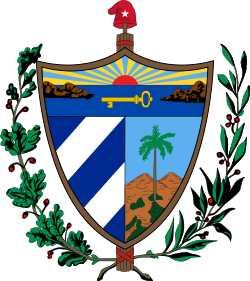The Family Code
The Family Code covers marriage, divorce, marital property relationships, recognition of children, obligations for children's care and education, adoption, and tutelage. The following are Clauses 24, 25, 26, 27, and 28 of the Cuban Family Code:
24. Marriage is constituted on the basis of equal rights and duties of both partners.
25. The spouses must share the same home, be faithful to one another, help, consider and respect each other. The rights and duties established by this code will subsist in their entirety as long as the marriage has not been legally terminated, in spite of the fact that for justifiable reasons a common household cannot be maintained.
26. Both spouses are obligated to care for the family they have created and cooperate with each other in the education, formation and guidance of their children in line with the principles of socialist morality. As well, each to the extent of his or her capabilities and possibilities must participate in governing the home and cooperate toward its best possible care.
27. The spouses are obligated to contribute toward satisfying the needs of faculties and economic capacities. Nevertheless, if one of the spouses contributes only through his or her work in the home and child-care, the other spouse must provide full economic support without this meaning that he or she be relieved of the obligations of cooperating with the housework and child-care.
28. Both spouses have the right to exercise their professions or crafts and must lend each other reciprocal cooperation and aid to this effect, as well as in order to carry out studies or perfect their training, but in all cases they will take care to organize their home life so that such activities be coordinated with fulfillment of the obligations imposed by this code.”
The Cuban people began to discuss the Family Code in the early 1974; they wanted it to become law in time for the FMC Congress. The Family Code was so important to the Cuban people that they deemed it vital to have a complete, "far-reaching" discussion about it. People as young as junior high school students got enthusiastically interested in the Code, and had debates and discussions about it as the first law to have tremendous importance for their future. The plan for the discussion of the code was announced by Blas Roca at the Women's Congress. Roca was a very active member of the Orthodox party, and Secretariat and head of the committee to draft new laws. He is now president of the national People's Assembly. Like all of Cuba's most important laws, the Family Code had been published in a tabloid edition to reach every Cuban; virtually everyone who wanted to read and study it could do so. Cuban people quickly mastered the new code in meetings through trade unions, CDRs, the FMC, and schools. Most Cubans attend more than one of these meetings, until they digest all the information they need to know. Because the government wanted to ensure the Code favors all and not some, people were encouraged at these meetings to ask questions and suggest additions, amendments, and or deletions. "The way this process works is that a record is kept of each meeting, the results are sent through the respective organizations to their highest level, where they are tabulated, computed, and turned over to the original committee (adjacent, at the time, to the party’s Central Committee, now adjacent to the National Assembly)." The Family Code was officially given to the Cuban people on March 8, 1975, which marks International Women's Day in Cuba.
